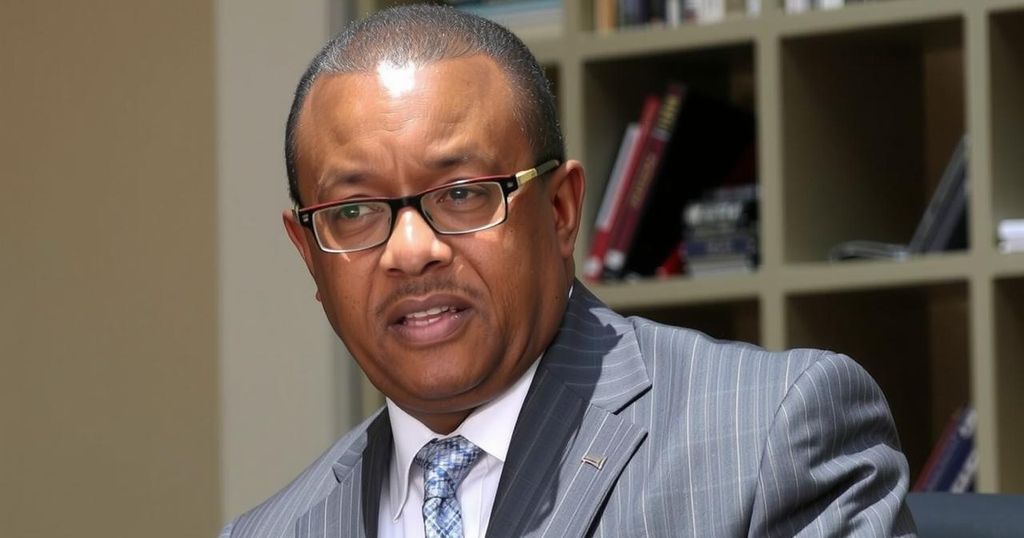US Ambassador Marc Dillard Voices Concerns Over Abductions in Kenya

U.S. Ambassador to Kenya, Marc Dillard, condemns a series of abductions and calls for accountability and respect for the rule of law. His statements align with widespread protests in Kenya advocating for the release of missing individuals. Recent protests have faced law enforcement responses, resulting in arrests, while human rights organizations report a rise in disappearances. The Kenyan government denies any involvement in these actions.
United States Ambassador to Kenya, Marc Dillard, has voiced serious concerns regarding the recent abductions in the country, calling for an immediate increase in accountability and adherence to the rule of law. His remarks coincide with growing outcries from international organizations, local human rights advocates, and Kenyan political leaders, all of whom demand a cessation of enforced disappearances that have triggered public unrest. Demonstrations have erupted across Nairobi and other major cities, with citizens insisting on the unconditional release of seven individuals reported missing since December 21.
Ambassador Dillard, who took over his position at the embassy following the departure of Meg Whitman, has drawn upon the legacy of the late former U.S. President Jimmy Carter, notorious for his dedication to human rights globally. Protests intensified on December 31, particularly in Nairobi’s Central Business District (CBD), where demonstrators displayed placards condemning the Kenya Kwanza administration. “President Carter championed human rights worldwide. In the spirit of his legacy, we join the calls in Kenya for accountability and respect for the rule of law. Abductions must end,” stated Dillard.
In reaction to these protests, law enforcement agencies implemented barricades on main access routes to the CBD and conducted searches of public transport vehicles to inhibit protestor movements. By midday, restrictions had been placed on matatus from entering the CBD, and Kenyatta Avenue was closed to public service vehicles. The growing momentum of protests was spurred by increased online activism on December 29, focusing on the release of individuals who had vanished in December, including notable figures such as Steve Mbisi and Billy Mwangi.
The protests ultimately led to the arrest of 23 individuals, including Busia Senator Okiya Omtatah, who faced allegations of inciting violence and noncompliance with the law in the Milimani Law Courts. However, a request to detain Omtatah and his co-defendants for an extended period was denied by the High Court, which allowed their release on bail. The Kenya National Commission on Human Rights (KNCHR) has reported that 82 individuals have been abducted since unrest escalated in July and August, with 13 of these incidents occurring in the last three months. Despite these allegations, Kenyan government officials continue to refute claims of involvement in such activities, reiterating that they do not condone enforced disappearances.
The issues of enforced disappearances and abductions in Kenya have become more pronounced, prompting significant public outcry and protests against the government. Recent events have revealed a pattern of such incidents, especially as the public mobilizes to advocate for the rights and safety of individuals believed to have been unlawfully taken. These developments coincide with a broader push for accountability and human rights adherence, drawing attention from both local and international entities. The legacy of prominent figures such as Jimmy Carter serves as a reminder of the importance of these principles on a global scale, particularly as communities rally for justice.
In conclusion, Ambassador Marc Dillard’s declarations highlight the urgent need for accountability regarding the spate of abductions in Kenya. The rising protests reflect a significant public demand for governmental action to address human rights violations. As advocates, both local and international, press for reform, the situation underscores the critical intersection of human rights and governance within Kenyan society.
Original Source: www.mwakilishi.com







